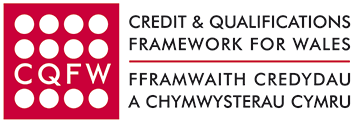Promote Active Support
- Unit ID:
- CCY374
- Unit Code:
- PT13CY056
- Level:
- Three
- Credit Value:
- 5
- Sector:
- 1.3
- LDCS:
- PT1
- GLH:
- 36
- Last registration date:
- 31/08/2019
- Lower age restriction:
- 16

Purpose and Aim
The purpose of this unit is to provide the learner with knowledge, understanding and skills to promote active support to increase an individual’s participation in tasks and activities. It is aimed at those whose role includes planning, monitoring and providing direct support and assistance to individuals
Learning OutcomesThe learner will
|
Assessment CriteriaThe learner can
|
||||||||||
|---|---|---|---|---|---|---|---|---|---|---|---|
|
|
||||||||||
|
|
||||||||||
|
|
||||||||||
|
|
Assessment Methods:
Assessment Information:
There is no specific assessment information to be used with this unit.
If not specifically stated in the assessment information, a plural statement in any assessment criterion means a minimum of two.
Other Mappings:
NOS ref: Active support is referenced throughout the majority of the HSC NOS , Links with HSC 328, 329, 339, 344
Assessor Requirements:
This unit needs to be assessed in line with the Skills for Care and Development QCF Assessment Principles.
LO 2, 3 and 4 must be assessed in real work environment
Additional information:
Active Support is a person-centred model of how to interact with individuals combined with a daily planning system that promotes participation and enhances quality of life.
Person-centred reflects what is important to individuals and helps them to live the life they choose
Individual is someone requiring care or support.
Hotel model refers to institutional style settings organised mainly around staffing needs. They are not person-centred and offer a poor quality of life to individuals. For example, where carers undertake all the domestic tasks and do not provide opportunities for individuals to participate in constructive activities.
Levels of help refers to graduated levels of assistance, from simple verbal reminders providing the lowest level of support to actual physical guidance providing the highest level. Assistance should be given flexibly according to the individual’s need for help, and should be focused on encouraging as much independence as possible.
Task analysis refers to breaking down tasks into small, manageable steps as in recipes or DIY guides. The size of each step or number of steps for a specific task should vary according to the individual’s ability or need for support.
Positively reinforcing refers to what an individual gains from undertaking a specific task. These can include naturally occurring rewards (eg. Drinking a cup of tea the individual has just made) or other things that the individual particularly likes (eg. Praise and attention or a preferred activity) as an encouragement or reward for participating in a specified activity.
Positive interaction refers to supportive interaction using the levels of assistance, task analysis and positive reinforcement that helps an individual to participate in constructive activity.
Others may include
• The individual
• Colleagues
• Families or carers
• Friends
• Other professionals
• Members of the public
• Advocates
Valued range of activities refers to the balance of activities that contribute to a good quality of life for individuals, incorporating vocational, domestic, personal, leisure, educational and social activities.
Disengagement means doing no constructive or meaningful activity, and can include aimlessly wandering about, pacing, staring, sitting, lying down, purposelessly fiddling with items and so on, with no social contact.
Valued lifestyle refers to the balance of activities that contribute to a good quality of life for individuals, incorporating vocational, domestic, personal, leisure, educational and social activities.